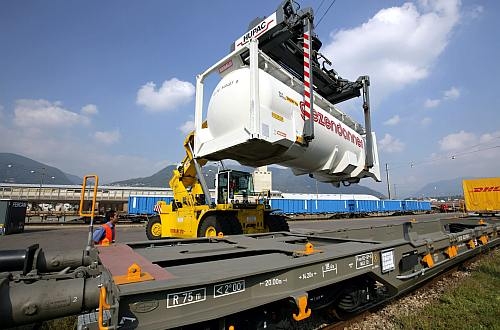Transalpine traffic, its most important business, was down by 11.1% to 428,517 units, with only traffic via Austria showing a very small increase of 0.7% to 53,053 units. The decrease is attributed to lower demand due to weaker economic conditions in Europe, especially Italy, which is the major receiving market for Hupac customers.
Another factor was a series of disruptions on the key Gotthard line, which was closed for a total of 40 days due to a landslide. Traffic was diverted to the Lötschberg route but this line also suffered delays due to construction work. Hupac reduced its wagon fleet, tightened services and adjusted terminal capacity in the face of the drop in volumes, but as managing directed Mr Bernhard Kunz stated, "Volatile markets are the new norm. We have to use every opportunity to increase productivity and reduce costs. Railway companies, operators, terminals – all of them must contribute their share. Governments also have important homework to do in terms of interoperability and market supervision."
Hupac warns price increases, particularly in track access, energy and wagon maintenance, could slow down the development of intermodal transport. "The transport market is under a great deal of pressure. We are cautious in our forecasts for 2013," says Kunz.

